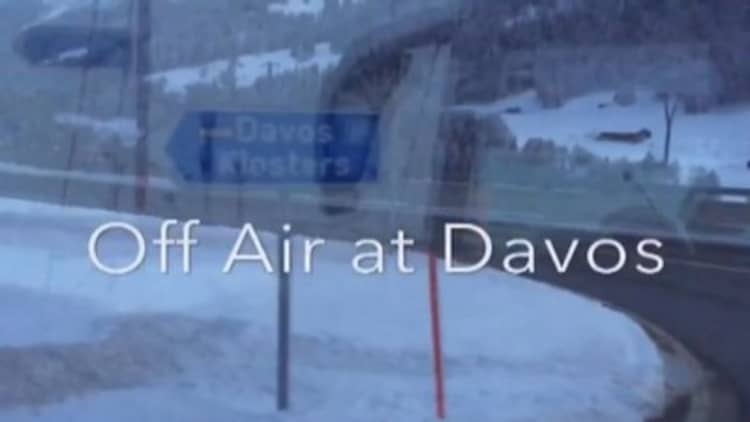Prominent economic thinkers in Davos believe the U.S. economy is strong, but its ability to deal with the next crisis is in doubt.
"The U.S. is growing and I think that's a non-debatable fact," Gary Cohn, president of Goldman Sachs, said Thursday at the World Economic Forum in Switzerland. "What I am concerned about is the actual ability of the U.S. to raise rates with what's going on with the rest of the world."
Cohn said renewed stimulus efforts in Japan, Europe and elsewhere were creating a big spread between global interest rates and currencies. He said raising rates in the U.S. would cause the dollar to further appreciate, which could have a "chilling effect on the U.S. economy."
Read MoreLagarde on European QE: It's already working
Ray Dalio, founder of Bridgewater Associates, the largest hedge fund in the world, echoed the point.
"We're in a new era in which central banks have largely lost their power to ease," Dalio said as part of the same panel discussion in noting historically low interest rates. "If you get a downturn in the economy, the effectiveness of monetary policy will be less."
He did say the U.S. economy was fine for now, but added later that it won't last forever. "I worry about the downside because the downside will come," Dalio said.
Still, he said the Federal Reserve should wait until it "sees the whites of the eyes of inflation" before raising interest rates.

Read MoreFink: Weather the negativity, you'll be rewarded
Former U.S. Treasury Secretary Larry Summers said the U.S. was unlikely to get rates up anytime soon—and shouldn't, given no current signs of inflation.
Summers did note that the delay could hurt when the next recession hits as the U.S. government won't have the same monetary tools to deploy.
"Are we anywhere near getting ourselves to a place where there's going to be 3 to 4 percentage points of running room to cut the next time the problem happens? I don't think so," Summers said.
"We have to recognize that the era when central bank improvisation can be the world's growth strategy is coming to an end."







